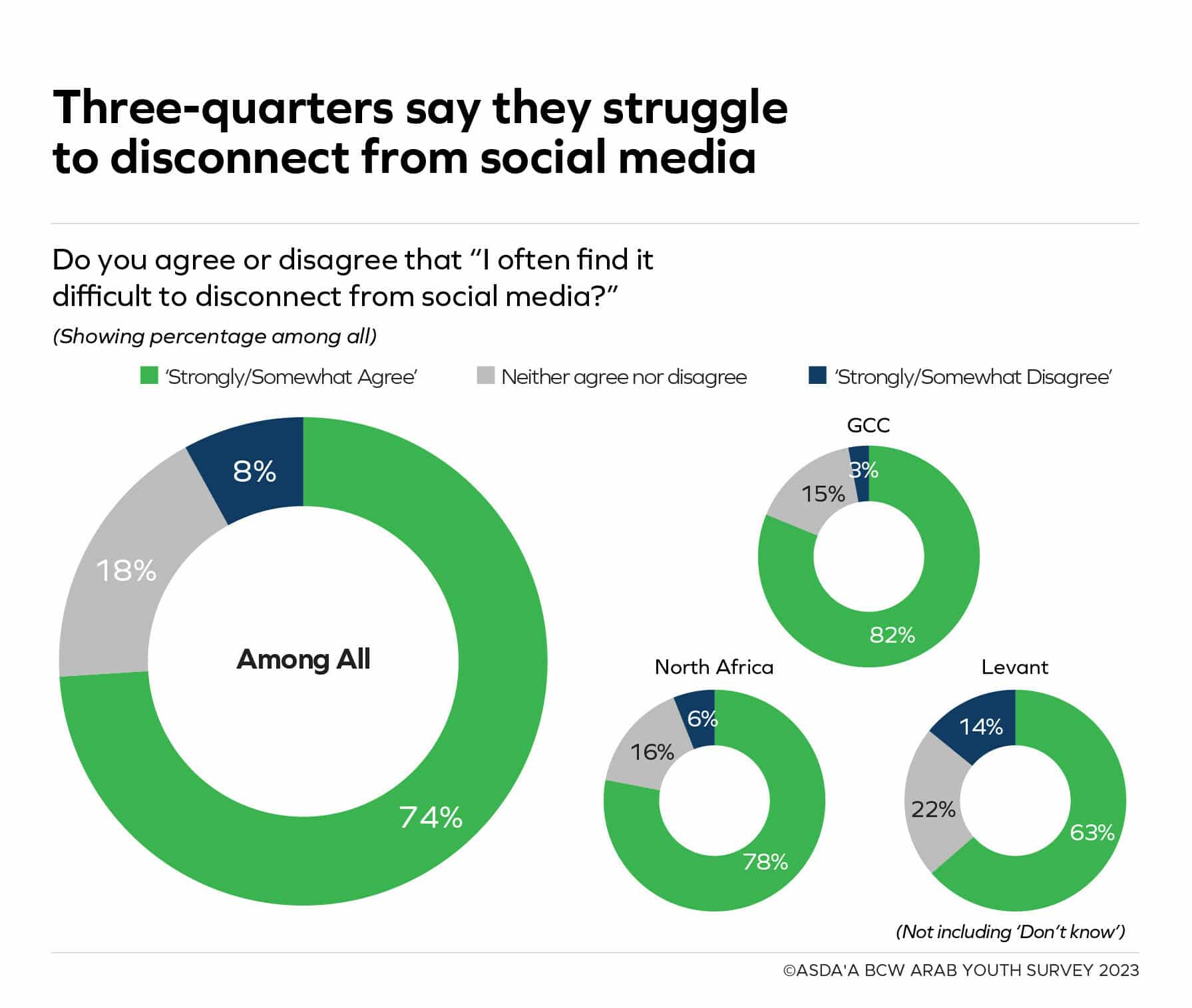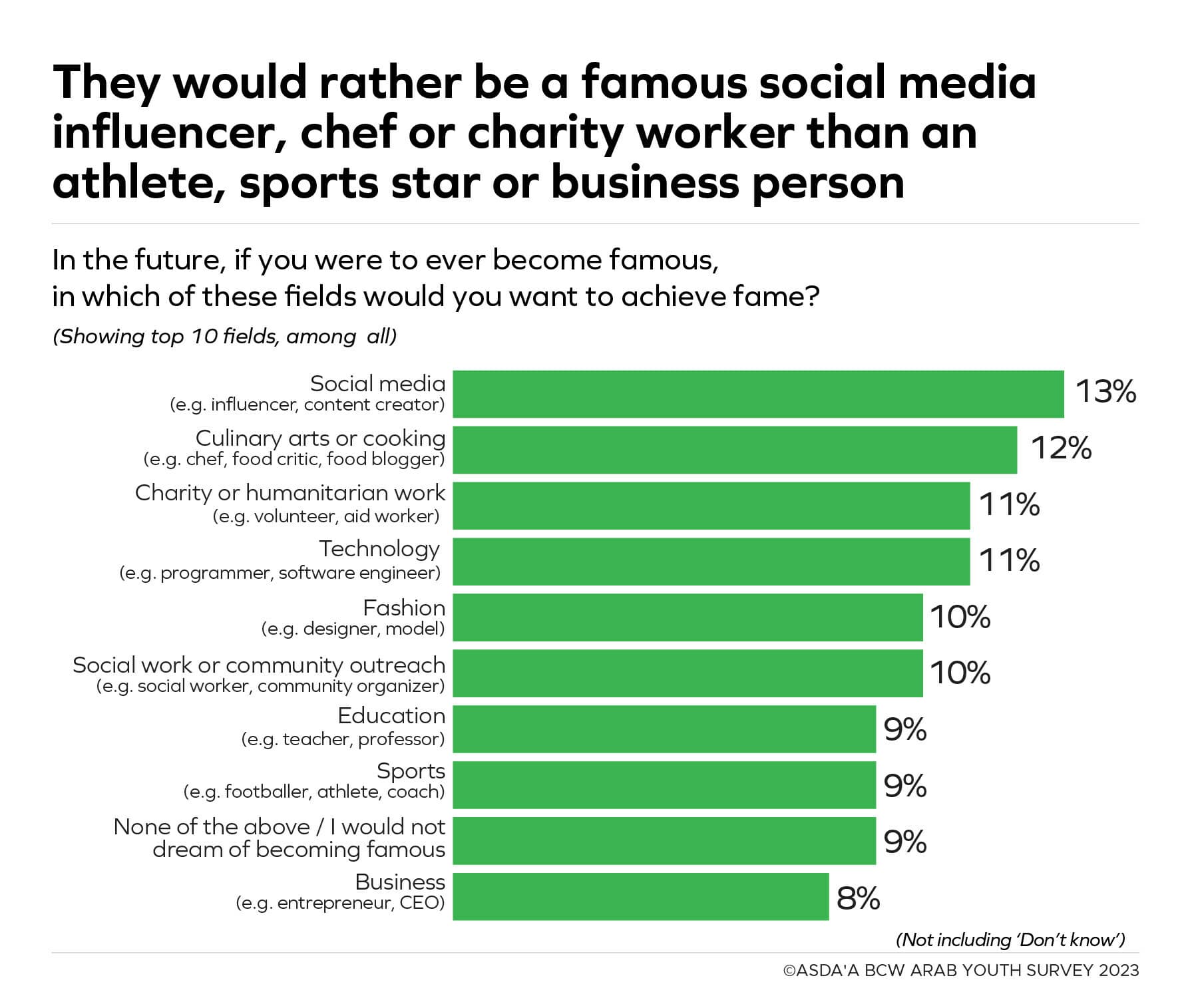
Three-quarters of Arab youth say they struggle to disconnect from social media
In a region known for its high per capita adoption of social media networks, a significant proportion of Arab youth are grappling with social media addiction, which is taking a toll on their mental health, according to findings from the 15th annual ASDA’A BCW Arab Youth Survey, a comprehensive study of the Arab world’s largest demographic conducted by ASDA’A BCW, MENA’s leading communications consultancy.
The survey, conducted under the theme ‘My Lifestyle,’ unveils a concerning trend, with 74% of young Arabs admitting to struggling to disconnect from social media. Moreover, 61% acknowledge that social media addiction has a negative impact on their mental health.
The results of the survey were unveiled during a special event organized by blinx, a digital media hub focused on youth in the Middle East, to coincide with World Mental Health Day. During the event, Sunil John, President, MENA, BCW, and Founder of ASDA’A BCW, along with Nakhle Elhage, General Manager of blinx, discussed the implications of the findings.
When asked about their preferred social channels, 18% of respondents identified Facebook as the most important platform, followed by Instagram (17%), WhatsApp (16%), YouTube (13%), TikTok (12%), SnapChat (11%), X/Twitter (8%), and LinkedIn (4%).
Interestingly, a majority of Arab youth (92%) believe that major tech companies like Meta, Apple, Netflix, and Google wield too much power. Similarly, an overwhelming majority (92%) feel that social media companies should do more to combat disinformation on their platforms.
Despite their struggle to disconnect, many young Arabs are enticed by the prospect of fame through social media, opting for “soft career” choices over more challenging roles in technology, medicine, or engineering. When asked which field they would prefer to achieve fame in, the highest percentage (13%) expressed a desire to be known as “social media influencers.” Other popular choices included being known as chefs, food critics, or food bloggers (12%), as well as gaining recognition for humanitarian work or contributions to technology (11%).

Young Arabs would rather be a famous social media influencer, chef or charity worker
Social Media Remains a Key News Source, but Trust Wanes
The survey also revealed that nearly two-thirds (61%) of respondents rely on social media as their primary source of news, although this represents a significant decrease from 2019 when nearly 80% of young Arabs cited social media as their main news source. Television, on the other hand, continues to be the second most preferred source of news, with 45% of young Arabs naming it as such.
Television maintains its status as the most trusted source of news for young Arabs, with 89% placing their trust in it. Online news portals come in second at 79%, followed by print dailies at 76%. In contrast, social media influencers are viewed as less trustworthy, with 42% of respondents deeming them as “not trustworthy.”
Announcing the survey findings, Sunil John noted, “The overwhelming dependence on social media seems to have isolated many young individuals, rendering them unaware of the socioeconomic realities. Given the highest levels of youth unemployment globally, the MENA region should focus on providing vocational training and quality education to prepare these young men and women for the jobs of the future.”
Nakhle Elhage commented on behalf of blinx, stating, “As we delve into the Arab youth media consumption habits and preferences revealed in the recent survey, we, at blinx, are committed to maintaining authenticity and truthfulness, free from fake news, misinformation, and disinformation.”
The 15th edition of the Arab Youth Survey was conducted by SixthFactor Consulting, a leading research company, and involved face-to-face interviews with 3,600 Arab citizens aged 18 to 24 in 53 cities across 18 Arab states, making it the largest sample in the survey’s history. All the survey findings, along with expert commentaries, are available at arabyouthsurvey.com.
This article was written by AI and edited by Bill Hartzer.